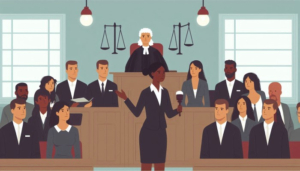
“Explore how to navigate relationships and personal growth after a DWI. Learn about forgiveness, rebuilding trust, and moving forward with expert insights and real-life stories.”
1. Introduction
What Is a DWI?
Driving While Intoxicated (DWI) refers to operating a vehicle under the influence of alcohol or drugs. The legal thresholds and implications vary by state, but a DWI charge typically results in severe consequences, including fines, license suspension, and possibly jail time. Addressing forgiveness and healing after such an incident is crucial, both for the individual involved and for their relationships.
Why Forgiveness Matters
Forgiveness isn’t just about letting go; it’s a critical step in mending relationships and personal growth. This article explores how individuals can navigate the aftermath of a DWI, rebuild trust, and move forward with their lives.
2. Understanding DWI
What Constitutes a DWI?
A DWI charge can arise from various forms of intoxication. Legally, it’s defined as driving with a blood alcohol concentration (BAC) over the legal limit or under the influence of illegal substances. The exact parameters can differ based on local laws, but the core concept remains the same: impaired driving poses a danger to everyone on the road.
Impact of a DWI Charge
The fallout from a DWI can be extensive. Legally, individuals may face fines, mandatory alcohol education programs, or even incarceration. Socially and personally, the stigma associated with a DWI can strain relationships and impact one’s self-esteem. Understanding these implications is the first step toward addressing and overcoming them.
3. The Importance of Forgiveness
Defining Forgiveness in the Context of a DWI
Forgiveness in this scenario involves not only seeking it from others but also extending it to oneself. It’s about accepting that mistakes happen and that growth is possible. Emotionally, forgiveness helps in healing from guilt and shame, while psychologically, it fosters a path to self-improvement and stronger relationships.
Forgiveness and Relationships
Rebuilding trust is a gradual process. Forgiveness is vital for moving forward together, as it allows for healing and reconciliation. It involves acknowledging the mistake, expressing genuine remorse, and demonstrating a commitment to change.
4. Steps to Moving Forward After a DWI
Acknowledging the Mistake
The first step in moving forward is accepting responsibility. Admitting fault can be challenging, but it’s essential for genuine growth. This acknowledgment should be followed by concrete actions to rectify the situation, such as participating in court-mandated programs and seeking personal improvement.
Seeking Professional Help
Navigating the aftermath of a DWI often requires professional guidance. Legal advice is crucial to understand the full scope of one’s options and obligations. Additionally, counseling and therapy can support emotional healing and personal growth, helping individuals manage guilt, shame, and the stress of the situation.
Communicating Openly With Loved Ones
Honest conversations are key to repairing relationships. Discussing the incident openly, expressing remorse, and outlining steps taken to prevent future occurrences can help in rebuilding trust. Transparency is essential for mending relationships and moving forward together.
5. Rebuilding Relationships
Strategies for Repairing Relationships
Rebuilding trust is a step-by-step process. It involves consistent behavior changes, demonstrating accountability, and showing a genuine commitment to improvement. Apologies should be sincere, and actions should reflect a true effort to make amends.
The Role of Support Systems
Friends and family play a crucial role in the recovery process. Their support can provide emotional stability and practical help. Engaging with a supportive network can also reinforce positive changes and offer encouragement throughout the healing journey.
6. Legal and Personal Support Systems
Working With Legal Professionals
Choosing the right lawyer is critical. Look for someone with experience in DWI cases who can provide sound advice and effective representation. Understanding your legal rights and options will help you navigate the legal system more effectively.
Personal Support Systems
Finding the right therapist or counselor can make a significant difference. Look for professionals who specialize in addiction or behavioral issues. Support groups can also provide a sense of community and shared experience, which is invaluable during recovery.
7. Moving Forward Personally and Professionally
Addressing Personal Growth
A DWI can be a catalyst for significant personal change. Reflect on the lessons learned and set new goals for personal development. Focusing on positive change and self-improvement can transform a negative experience into an opportunity for growth.
Professional Implications
A DWI can impact career prospects, but it’s not the end of the road. Mitigate professional damage by demonstrating your commitment to change and seeking opportunities to rebuild your reputation. Be proactive in addressing any career-related consequences and focus on moving forward.
8. Preventive Measures for the Future
Avoiding Future Mistakes
Develop strategies for responsible behavior, such as avoiding situations where you might be tempted to drive under the influence. Creating a personal action plan can help you stay accountable and prevent future incidents.
Educating Oneself and Others
Raise awareness about the dangers of DWI and participate in community initiatives. Educating others can help prevent similar situations and contribute to a safer community.
9. Personal Stories and Case Studies
Real-Life Examples
Hearing from others who have faced similar challenges can be inspiring. Success stories of individuals who have navigated the aftermath of a DWI and rebuilt their lives can provide hope and practical insights.
10. Expert Insights
Quotes and Advice
Legal and psychological experts offer valuable perspectives on dealing with the aftermath of a DWI. Their advice can provide additional guidance on forgiveness, rebuilding relationships, and personal growth.
11. Conclusion
In conclusion, moving forward after a DWI involves a multi-faceted approach. It requires acknowledging the mistake, seeking professional help, communicating openly, and working towards personal and relational growth. With determination and support, it’s possible to rebuild and create a positive future.






